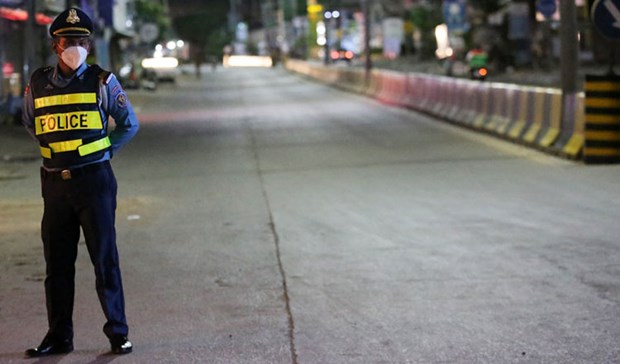Southeast Asian nations step up measures against COVID-19
Cambodia’s Phnom Penh authorities have ordered extending the night curfew by seven days to August 19.
 |
| Cambodia’s Phnom Penh authorities have ordered extending the night curfew by seven days to August 19. (Photo: Khmer Times) |
“A curfew is imposed, temporarily suspending all traffic and business activities between 22.00 and 3.00 hours for seven days from zero on August 13, 2021 to August 19, 2021,” Khmer Times quoted a document issued by the local administration as saying.
In addition, the decision states that activities, occupations or businesses at high risk of spreading COVID-19 are temporarily suspended for 14 days, from August 13-26.
The decision targets schools, both public and private; all kinds of clubs, including karaoke, bars, discos, beer gardens and casinos; resorts, museums, playgrounds and parks; massage, sauna and all kinds of business; all kinds of shops and liquor stores; and cinemas, art theaters, gyms and all kinds of sports centers.
The Cambodian Ministry of Health on August 11 morning reported 486 new COVID-19 cases and 12 deaths, pushing the national tally to 83,384 and the death toll to 1,614.
Meanwhile, the Indonesian Government said on August 11 that Jakarta now has no red zones of COVID-19, and all of the capacity city’s localities are in orange zones that indicate a medium risk of infection.
Jakarta confirmed 40 fatalities and 1,222 recovered patients on the day. A total of 10,520 patients are under treatment in hospitals or at home.
Bangkok Post said two coronavirus vaccines administered using a nasal spray being developed in Thailand are due to start human trials by the end of this year, after promising results in trials involving mice.
Developed by the National Center for Genetic Engineering and Biotechnology, the vaccines are based on the adenovirus and influenza, the newspaper cited deputy government spokeswoman Ratchada Thanadirek as saying on August 11.
After conducting trials in mice, the first phase of human trials should start by the end of this year, pending approval from the food and drug regulator, she said.
The trials will also test protection against the Delta variant, Ratchada said, with the second phase due in March next year and a target of production for wider use in mid-2022, if results are good, she said.
The country’s vaccination campaign has so far relied on Sinovac, AstraZeneca and Sinopharm shots.
Source: VNA